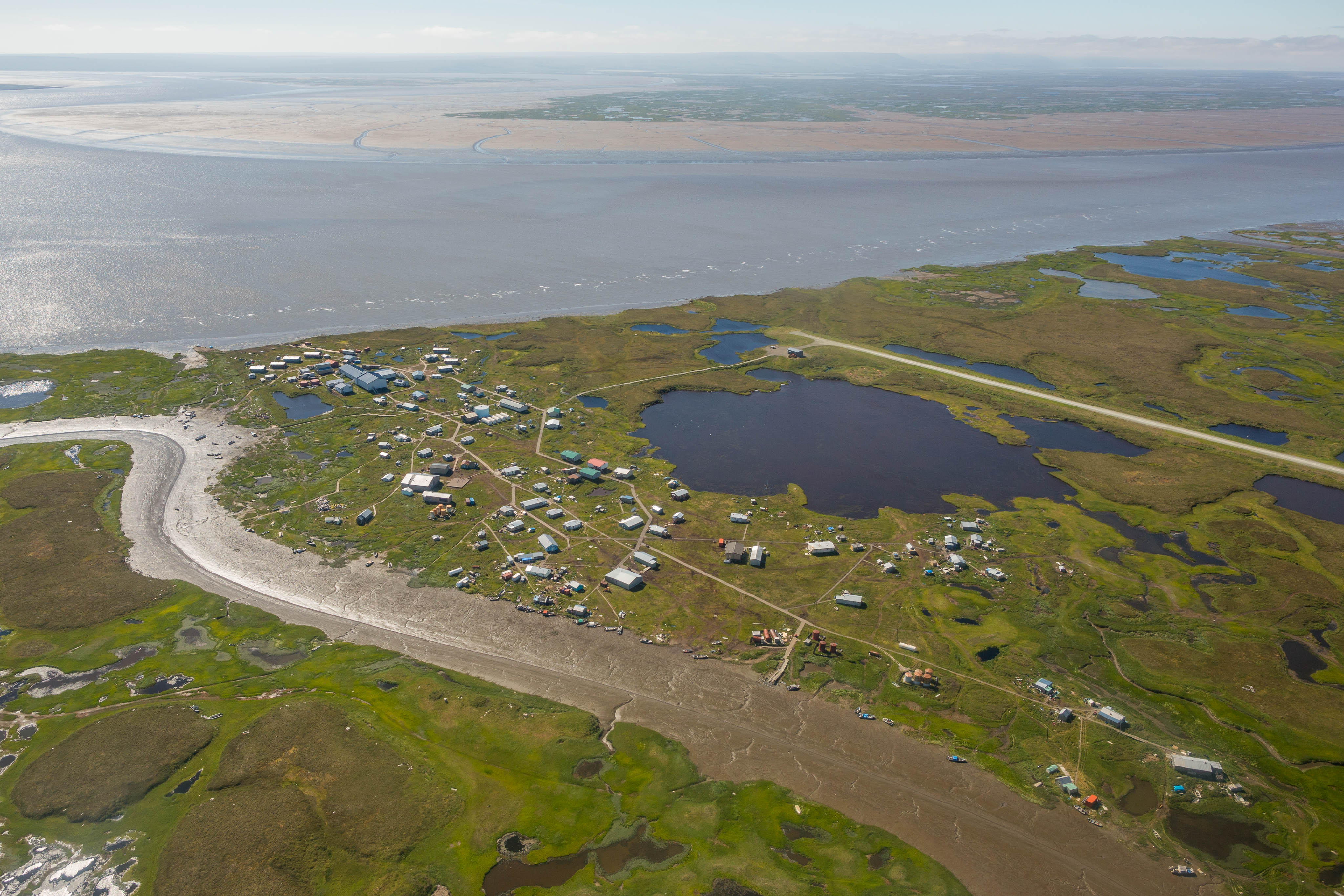If the Trump pulls US out of the Paris accords fund, some of that money should go to climate-affected Alaska villages, says Native group

Now that President Trump has announced the United States’ withdrawal from the Paris climate accords, he should make good on his “America first” rhetoric by giving climate-change-impacted Alaska Native communities some of the money that would have otherwise gone to international climate fund—or so says a resolution passed by the state’s largest Native organization at its annual convention.
The Alaska Federation of Natives, in one of about three dozen resolutions approved on Saturday at the annual gathering in Anchorage, urged that “President Trump demonstrate his commitment to America First with regards to First Americans” who are being harmed by persistent floods, erosion, storms and permafrost thaw.
At issue is the Green Climate Fund established in 2010 under the United Nations Framework Convention on Climate Change. The fund aids poor and underdeveloped countries as they respond to, mitigate and adapt to climate change.
As part of its participation under the 2015 Paris Accords, the U.S. pledged to contribute $3 billion over six years to the fund; two annual payments of $500 million have already been made.
If the U.S. is no longer a party to the Paris accords, that money is now freed up for reallocation — and it should go to U.S. communities threatened by climate change, including Alaska Native communities, the resolution says.
The resolution was submitted by the village of Newtok, a southwestern Alaska community along the thawing permafrost banks of river. The Yupik village is working on moving to safer ground, the process has been slow and costly.
Romy Cadiente, Newtok’s relocation coordinator, said he hopes the resolution will get attention from the Trump administration.
“When he pulled out of the Paris Accords and everything, he wanted to put America first,” Cadiente said. “If President Trump was really interested in having America first, why not start with the First Americans?”
When Trump in June announced that he was pulling the US out of the Paris agreement, he singled out the Green Climate Fund for particular criticism, saying it was “costing the United States a fortune.”
Trump already has plans to redirect of money that would go into the Green Climate Fund, according to reports over the summer. His administration is hoping to use the money to help pay for new coal plants overseas, according to reports.
The resolution on a new use for Green Climate Fund contributions was among four submitted by Newtok that were approved by the federation.
Another resolution calls for changes to the law concerning federal aid for natural disasters — the Stafford Act — so that such aid can be provided for communities affected by “slow-moving” disasters like the type of dramatic erosion created when bigger storm surges combine with thawing permafrost. The issue got attention after an application for federal disaster aid for erosion in Newtok was rejected in January because the cause of the village’s erosion problem was not a single natural-disaster event.
The idea of expanding disaster aid got some support from a former diplomat. Mark Brzezinski, head of the U.S. Arctic Steering Committee in the Obama administration and a former U.S. ambassador to Sweden, said time had come to help indigenous communities by expanding the official definition of disaster.
If climate change impacts do not meet the definition of disaster, “we have to change the definition,” Brzezinski said in a panel discussion at the conference. “That is the least that the American people owe to the Native people of Alaska.”
Another urges the state that more of the federal transportation funding coming to Alaska be used for roads needed by villages actively working to relocate. Up to 15 percent of the state of Alaska federal surface transportation funds should go to the projects serving the villages most endangered by persistent flooding, erosion and permafrost degradation and thus planning to relocate.
The fourth Newtok-submitted resolution calls for a 2 percent set-aside from a national housing program to help climate-change-impacted villages pay for replacement housing. The money would from allocations made through the Native American Housing Assistance and Self-Determination Act; the current allocation is about $1 billion, Cadiente said, so a 2 percent share amounts to $20 million. The resolution calls for that funding to go to communities experiencing emergencies that, for now, do not qualify for federal disaster aid.